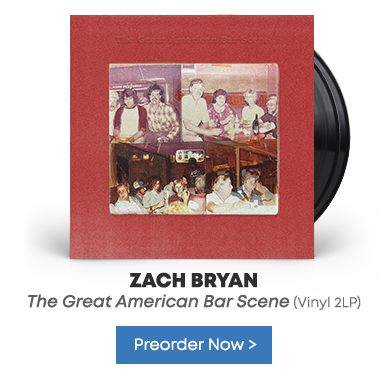When "Saturday Night Live" returns later this month, it will do so following a recent Emmy win for variety sketch series. No doubt the trophy recognizes the ways in which "Saturday Night Live" poked fun at a volatile election season, injecting laughs where there was often little more than harsh discourse. But the show is noteworthy for far more than topical comedy. Its musical guest slot remains a coveted spot, and SNL will open the season with no less than Jay-Z. Considering the superstar rapper rarely makes promotional appearances, the coup speaks to the respect given the long-running series. Here, we look back at some of SNL's musical highlights – as well as some of its wilder bookings.
The Replacements
In the mid-80s, the Replacements seemed an odd fit for major-label treatment. The underground heroes were noted as much for their rambunctious and unpredictable live performances as their mix of sneering and heartfelt songs. Subsequently, the band's arms-folded attitude, not to mention its penchant for over-indulging in alcohol, ensured its jump to Warner Bros. wasn't always easy. Demands for a video and pressures to make TV appearances – big-money accoutrements leader Paul Westerberg disdained – followed. So, in early 1986, to promote the Replacements' Tim, Warner Bros. helped secure the group placement on "Saturday Night Live." The appearance ultimately got the band banned by the show's creator/producer, Lorne Michaels. Track down a clip of the quartet performing "Bastards of the Young" and all seems well. Westerberg is all-high-energy hollering and bassist Tommy Stinson, while not always in frame, the epitome of controlled chaos. The problem? Near the end of the song, Westerberg hurls a curse toward guitarist Bob Stinson that was picked up on national television.
Elvis Costello
Elvis Costello also received the banned-by-Michaels treatment, although the bespectacled English rocker has since been invited back. But in late December of 1977, Costello pulled a punk-rock stunt on live television that doubtlessly would have won the applause of Johnny Rotten and the Sex Pistols. (Costello got booked only after the Sex Pistols dropped out.) As television and pop-music lore tell it, Costello was instructed by his label, Columbia Records, to perform the single "Less Than Zero," a song that teeters between pure pop and fuzzy, guitar bite. Making his American television debut, Costello wanted something a little louder – something more akin to the anti-establishment anthem "Radio Radio." Ten seconds in to "Less Than Zero," the singer called an audible. "I'm sorry, ladies and gentleman, there's no reason to be doing this song here," he said of the decidedly British-focused "Less Than Zero." And so begins the full-on rant "Radio Radio," which aims to hide its attitude with candy-coated keyboards. In the years since, Costello has admitted the switch-a-roo wasn't entirely a middle finger to NBC or his record label. Presciently, he had a feeling it'd garner the band attention.
Sinead O'Connor
Irish singer Sinead O'Connor was in an odd place in late 1992. After the massive success of 1990's I Do Not Want What I Haven't Got, she released Am I Not Your Girl?, an album of mostly jazz standards that failed to excite the public and critics. An October appearance on "Saturday Night Live," however, certainly got folks talking again. Everything about her performance felt bracing. O'Connor opted to sing an a cappella rendition of Bob Marley's "War," but delivered the song with harsh directness rather than the warm delivery American audiences associated with her work. As the tune began to reach its abrupt conclusion, she produced a picture of Pope John Paul II and ripped it up, urging viewers to "fight the real enemy." The move protested the Catholic Church's allegations of child abuse in Ireland – and came years before similar cases would reach the U.S. In rehearsals, O'Connor had held up a photo of a refugee child. NBC claims to have received more than 4,000 phone calls complaining about O'Connor's actions.
Kanye West
"Saturday Night Live" touts a long history with hip-hop. Kanye West, for instance, has guested on the show more than five times, and in the mid-80s, the telecast celebrated Run-D.M.C.'s jump to the mainstream. Earlier, in 1981, Blondie's Deborah Harry brought with her New York's Funky 4+1, which closed the show with a front-and-center DJ and elastic, light-hearted rhymes. Yet West's appearance in 2013 remains the stuff of modern legend. Performing "New Slaves" and "Black Skinhead," West illustrated the abrasiveness that can be found in minimalism. Backed on the former song by images of price tags, he stood at the foot of the stage in near darkness and critiqued the paths to freedom in a cash-driven culture. Later, for "Black Skinhead," West gave the industrial-edged tune a backdrop of black-hooded KKK members and barking dogs. As West shouted, the microphone stand appeared the only thing keeping him grounded on the stage. While today we may wonder what West and Taylor Swift think of one another, in 2013 on "Saturday Night Live," the rapper looked ready to lead a revolution.
David Bowie
Regardless of David Bowie's career phase, TV was bound to be slightly unready for it. His late 1979 appearance on "Saturday Night Live" remains downright celebratory in how it mixes and matches gender roles and genres. For "The Man Who Sold the World," Bowie is brought to the microphone by performance artists Klaus Nomi and Joey Arias. Bowie, sporting a sharp-shouldered costume that rendered him immobile, transformed at once into a striking figure – one who seemed to mock masculine displays of wealth. Later, in the swifter, harder-edged "TVC 15," Bowie donned a conservative dress and heels, while Nomi and Arias ogled and awed a toy poodle. Finally, on "Boys Keep Swinging," Bowie essentially became a marionette, thanks to a little help from television magic, of course. For the uninitiated, it all looked weird. But for those who viewed all three performances, and took the time to investigate Bowie's catalog, the message was clear: Be whoever you want.
22nd Sep 2017




































